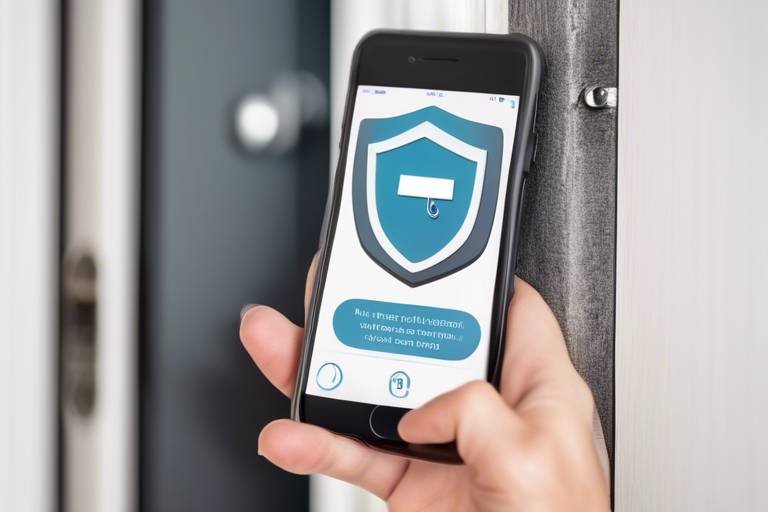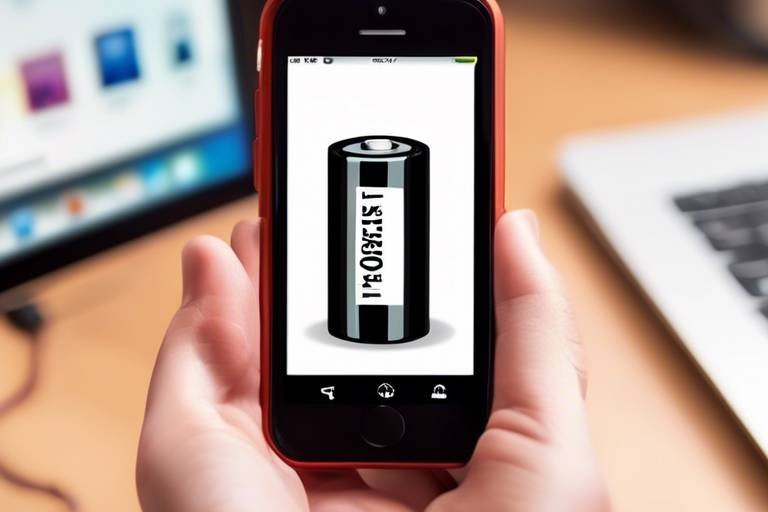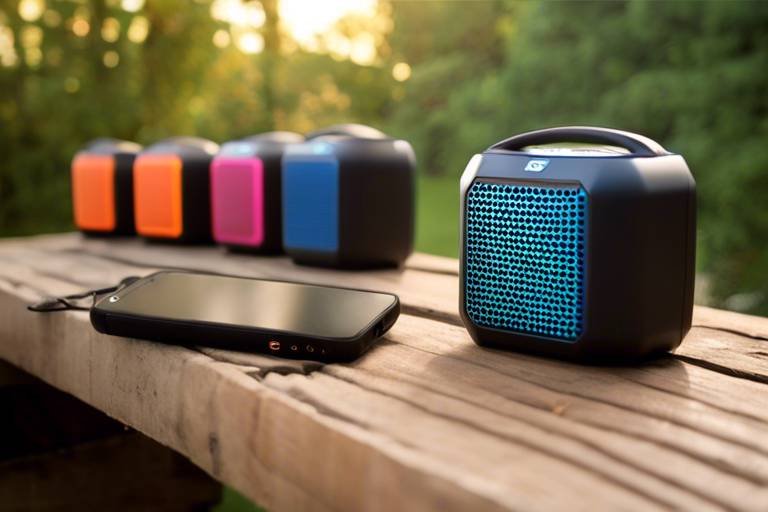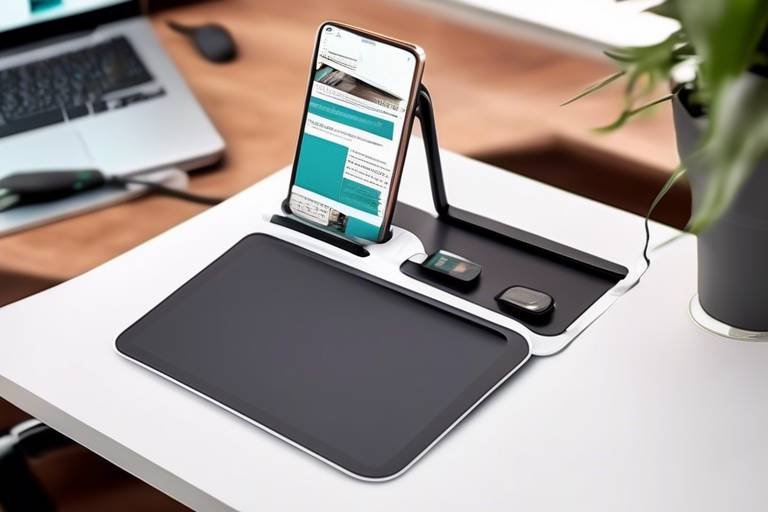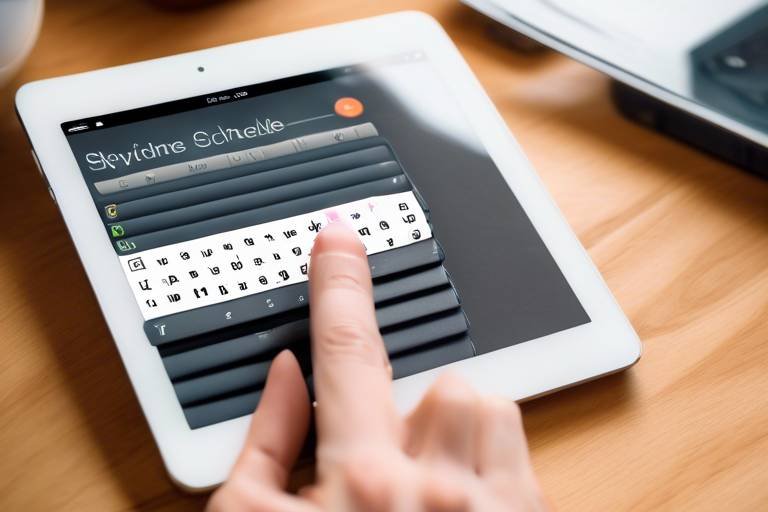How to Use Smart Tech to Keep Your Home Safe
Smart technology has revolutionized the way we secure our homes, offering a range of innovative solutions to keep our living spaces safe and protected. From smart locks to security cameras, motion sensors, and alarms, these advanced devices work together to enhance home security and provide peace of mind to homeowners.
One of the key components of a smart home security system is smart locks. These modern locks offer convenience and enhanced security by allowing homeowners to control access to their homes remotely. With smart locks, you can monitor who enters and exits your home, granting temporary access to visitors or service providers with ease.
When it comes to monitoring your home, security cameras play a crucial role. Smart security cameras provide real-time video monitoring, motion detection, and recording capabilities, allowing you to keep an eye on your property from anywhere in the world. Whether you're at work or on vacation, smart cameras offer peace of mind and a sense of security.
Another smart technology that can bolster home security is smart lighting. By using automated lighting schedules, smart lighting systems create the illusion of occupancy, deterring potential intruders. These systems can be programmed to turn on and off at specific times, making it seem like someone is home even when the house is empty.
When it comes to immediate security threats, smart alarms are essential. These systems provide instant alerts in case of a breach, and they can be integrated with other smart devices for comprehensive protection. With remote arming and disarming options, smart alarms offer convenience and peace of mind.
For added security, motion sensors are highly effective in detecting movement in and around your home. When triggered, these sensors can send notifications to your smartphone and activate other security devices, such as lights or alarms, to deter potential intruders.
Integrating various smart security devices into a cohesive system is key to maximizing home security. Smart home integration allows for centralized control of all security devices, enhancing overall protection and making it easier to manage and monitor your home's security measures.
Controlling your smart home security system is made easy with mobile apps. These apps enable you to monitor your home remotely, customize settings, and receive alerts on the go. Whether you're at work or traveling, you can stay connected to your home security system at all times.
While smart technology offers numerous benefits for home security, it's essential to prioritize privacy and data security. Safeguarding your smart devices against cyber threats by using strong passwords, keeping devices updated, and securing your network is crucial to ensuring the safety of your home and personal information.

Smart Locks
Exploring the ways in which smart technology can enhance home security, from smart locks and cameras to motion sensors and alarms, making your home safer and more secure.
Smart locks are revolutionizing the way we secure our homes. These innovative devices offer a blend of convenience and security that traditional locks simply can't match. With smart locks, you can say goodbye to fumbling for keys or worrying about lost copies. Instead, you have the power to control access to your home remotely, granting entry to trusted individuals with a simple tap on your smartphone. Imagine the peace of mind knowing who enters and exits your home, even when you're miles away.

Security Cameras
When it comes to enhancing home security, smart security cameras play a crucial role in providing peace of mind and real-time monitoring capabilities. These advanced cameras are equipped with features such as motion detection and video recording, allowing you to keep a close eye on your property even when you're away. With the ability to access live footage remotely through a mobile app, you can quickly check in on your home and receive alerts if any suspicious activity is detected.
Moreover, smart security cameras come in various types, including indoor and outdoor models, with options for both wired and wireless installations. This flexibility allows you to customize your home surveillance system according to your specific security needs and preferences. Whether you want to monitor your front door, backyard, or entire property, there is a smart camera solution available to meet your requirements.
Additionally, some smart security cameras offer advanced features such as two-way audio communication, night vision capabilities, and cloud storage for recorded footage. These features not only enhance the security of your home but also provide added convenience and functionality. By investing in a smart security camera system, you can deter potential intruders, gather evidence in case of incidents, and ultimately create a safer living environment for you and your family.

Smart Lighting
Smart lighting systems are a key component of enhancing home security through the use of smart technology. These systems offer more than just illuminating your space; they can also be utilized to create the illusion of occupancy when you're away, deterring potential intruders. By setting up automated lighting schedules, smart lighting can give the impression that someone is home, even when the house is empty. This added layer of security can significantly reduce the risk of break-ins and theft.
Moreover, smart lighting can be integrated with other smart devices in your home security system, such as motion sensors and cameras, to provide a comprehensive security solution. When motion sensors detect movement, they can trigger the smart lights to turn on, alerting you to potential activity and potentially scaring off intruders. This interconnected network of devices working together creates a robust security infrastructure that actively protects your home.
Imagine coming home late at night and having the pathway to your front door automatically illuminated as you approach, thanks to smart lighting. Not only does this provide a welcoming ambiance, but it also enhances safety by ensuring you can clearly see your surroundings and potential hazards. Smart lighting offers both convenience and security, making it a valuable addition to any smart home security setup.

Smart Alarms
Smart alarms are an essential component of a comprehensive home security system, offering advanced features to protect your property and loved ones. These intelligent devices go beyond traditional alarms by providing instant alerts, integration with other smart devices, and remote arming/disarming options. With smart alarms, you can enjoy peace of mind knowing that your home is constantly monitored and protected.

Motion Sensors
Motion sensors are a crucial component of any smart home security system, acting as the vigilant eyes that detect any movement in and around your property. These sensors are designed to trigger alerts and activate other security devices in response to suspicious activity, effectively deterring potential intruders before they can breach your home's defenses.
One of the key benefits of motion sensors is their ability to provide an extra layer of security by detecting unauthorized movement, whether it's a prowler in your backyard or an unexpected visitor at your front door. By promptly alerting you to any unusual activity, motion sensors give you the peace of mind that comes with knowing your home is being actively monitored and protected.
Moreover, motion sensors can be strategically placed in various areas of your home to cover blind spots and vulnerable entry points, ensuring comprehensive surveillance. Whether integrated with your smart lighting system to illuminate dark corners or linked to your security camera for enhanced monitoring, motion sensors play a pivotal role in fortifying your home's defenses against potential threats.
Imagine motion sensors as the silent guardians of your property, constantly scanning their surroundings for any signs of danger. With their ability to detect even the slightest movement, these sensors act as the first line of defense, alerting you to any potential risks and enabling swift action to prevent security breaches. By incorporating motion sensors into your smart home security setup, you are investing in proactive protection that can make all the difference in safeguarding your home and loved ones.

Smart Home Integration
Smart home integration is the key to maximizing the efficiency and effectiveness of your home security system. By combining various smart devices into a cohesive network, you can create a seamless and interconnected security infrastructure that works together to keep your home safe. Imagine your smart locks, security cameras, motion sensors, and alarms all communicating with each other in real-time, sharing information and triggering actions based on the detected threats or activities.
One of the primary benefits of smart home integration is centralized control. With all your security devices connected and working together, you can manage and monitor them from a single interface, whether it's a smart hub or a dedicated security app on your smartphone. This centralized control not only simplifies the operation of your security system but also ensures that all components are in sync and ready to respond to any security incidents.
Moreover, smart home integration allows for enhanced security measures throughout your property. For example, when a motion sensor detects movement at your front door, it can automatically trigger the security camera to start recording and send you a notification on your phone. At the same time, the smart alarm system can be armed, ready to sound an alert if the situation escalates. This seamless coordination between different devices strengthens your overall home security posture and provides comprehensive protection.
Additionally, integrating your smart security devices can improve the efficiency of your home automation. For instance, you can set up rules and routines that link your security system with other smart devices in your home, such as smart lights or thermostats. This integration enables you to create custom automation scenarios, like having the lights turn on automatically when motion is detected or adjusting the temperature when you arm the security system before leaving the house.
Overall, smart home integration offers a holistic approach to home security, combining the capabilities of individual devices to create a more intelligent and responsive security ecosystem. By leveraging the power of interconnected smart technology, you can enhance the safety and protection of your home while enjoying the convenience and peace of mind that comes with a fully integrated security system.

Mobile Apps
Mobile apps play a crucial role in modern smart home security systems, offering users unparalleled convenience and control over their home protection. With the ability to manage your security devices remotely, these apps provide a seamless way to monitor your home's safety from anywhere in the world. Whether you want to check live camera feeds, receive instant alerts, or arm/disarm your alarm system on the go, mobile apps make it all possible with just a few taps on your smartphone.

Privacy and Data Security
Privacy and data security are paramount when it comes to integrating smart technology into your home for enhanced security measures. Safeguarding your smart home devices against cyber threats is essential to prevent unauthorized access and protect your personal information. By implementing strong passwords, regularly updating firmware and software, and ensuring secure network configurations, you can significantly reduce the risk of potential breaches.
One effective way to enhance privacy and data security is to enable two-factor authentication on all your smart devices. This adds an extra layer of protection by requiring a secondary verification method, such as a unique code sent to your mobile device, in addition to your password. By utilizing this feature, you can significantly reduce the likelihood of unauthorized access to your smart home system.
Another crucial aspect to consider is the encryption of data transmitted between your smart devices and the central hub. Ensuring that all communication is encrypted using robust security protocols will help prevent interception of sensitive information by malicious actors. Additionally, regularly reviewing and managing the permissions granted to each device within your smart home network can help minimize potential vulnerabilities and unauthorized access.
When setting up your smart home security system, it is essential to carefully review the privacy policies and terms of service provided by the manufacturers of the devices you are using. Understanding how your data is collected, stored, and shared by these devices can help you make informed decisions about your privacy settings and preferences. By being aware of the data practices of each device, you can take proactive steps to protect your privacy and maintain control over your personal information.
Frequently Asked Questions
- Are smart home security devices difficult to install?
Most smart home security devices are designed for easy DIY installation, with step-by-step instructions provided in the user manual or through the accompanying mobile app. In general, no special technical skills are required to set up these devices, making them accessible to the average homeowner.
- Can smart security cameras be hacked?
While any internet-connected device carries a certain level of risk, you can minimize the chances of your smart security cameras being hacked by following best practices such as using strong, unique passwords, regularly updating firmware, and securing your home network with encryption.
- Do smart alarms work during power outages?
Most smart alarm systems come with backup battery power to ensure they remain operational during power outages. Additionally, some systems offer cellular or battery-powered connectivity options to ensure continuous protection even when the power is down.
- Are smart home security systems compatible with all smartphones?
Smart home security systems typically support both iOS and Android devices, allowing users to control and monitor their security devices through dedicated mobile apps. It's essential to check the compatibility requirements of the specific system you choose to ensure seamless integration with your smartphone.
- How secure is the data collected by smart security devices?
Manufacturers of smart security devices prioritize data security and employ encryption protocols to safeguard the information collected by these devices. By following recommended security practices such as using secure networks and regularly updating software, users can enhance the protection of their data.

